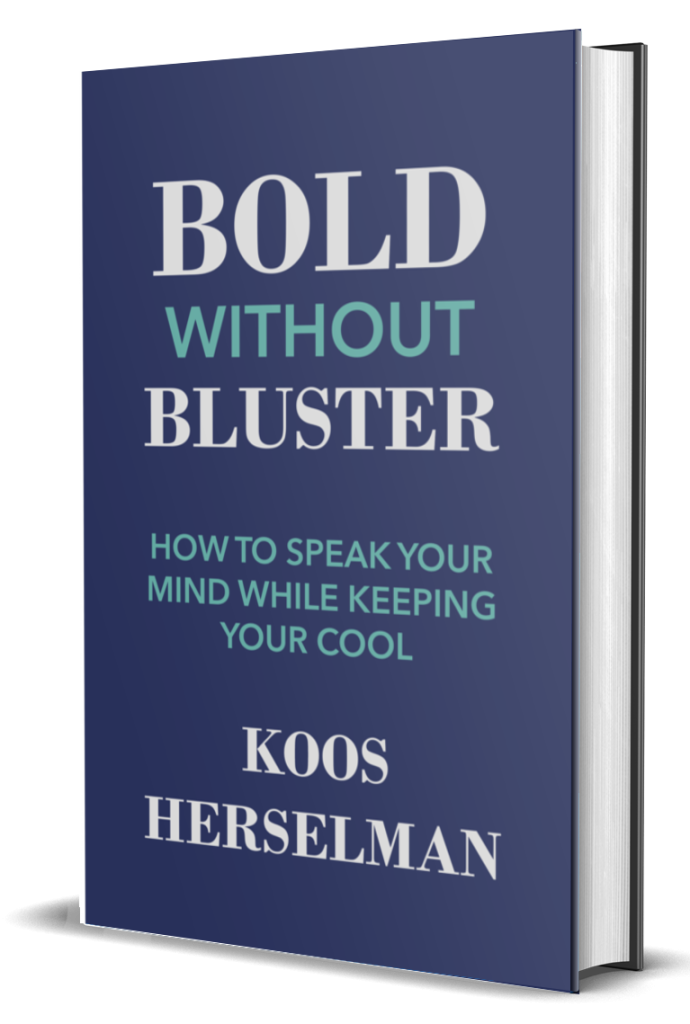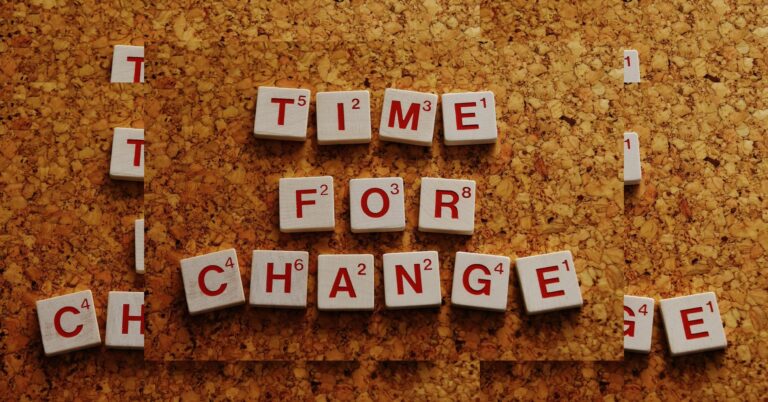There’s a moment that plays out in many of our lives, far too often. A request lands in front of us. We already know the answer we want to give. But instead of a simple, clear ‘No’, we find ourselves saying ‘Okay’, or ‘I’ll try’, or something non-committal that we hope will buy us some time. It doesn’t feel like a big deal. After all, it’s just one more thing. But behind that small concession is a recurring pattern, a slow erosion of time, energy, boundaries, and self-respect.
Why is ‘No’ so difficult to say? And what changes when we start saying it clearly, kindly, and confidently?
This is one of the many topics I explore in Bold Without Bluster: Mastering the Art of Assertiveness. And while the book covers a range of interpersonal challenges, receiving criticism, dealing with disappointment, accepting praise, few things have as immediate and far-reaching an impact on our personal and professional lives as learning how to say ‘No’.
In this article, I want to focus on the practical value of this one skill: the ability to say ‘No’ without guilt. Not rudely. Not dramatically. But with clarity and respect, for ourselves and for others.
Let’s start by understanding what’s really at stake.
Saying Yes Comes at a Cost
When people talk about burnout, they often point to external pressures: a demanding job, a chaotic home life, constant notifications, a schedule that won’t slow down. But beneath these is something quieter, often self-inflicted, the inability to say ‘No’. Overcommitting is not always about ambition or generosity. Sometimes, it’s about fear. Fear of disappointing others, fear of being seen as unhelpful or difficult, fear of conflict, or even fear of not being liked.
What makes this pattern so dangerous is how invisible it can be. A single ‘Yes’ may not feel significant, but over time, the consequences compound. We sacrifice rest, neglect priorities, and build resentment, all in the name of keeping the peace.
When we say ‘Yes’ to everything, we are, by default, saying ‘No’ to the things that matter most. That includes our wellbeing, our focus, and our capacity to give our best to the commitments we do choose.
The Myth of Niceness
Many people equate being agreeable with being kind. But there’s a critical difference between kindness and people-pleasing. One comes from a place of strength; the other from avoidance. It’s entirely possible to be kind and boundaried. In fact, the most reliable and trustworthy people are often those who are willing to say ‘No’ when it matters.
Assertiveness is not about being difficult. It’s not about confrontation or stubbornness. It’s about clarity. It’s about knowing what you are able and willing to offer and expressing that honestly.
If we are always trying to make everyone else comfortable, we are, ironically, being dishonest. We may think we’re sparing others disappointment, but often we’re just postponing it, or displacing it onto ourselves.
So How Do You Say ‘No’ Well?
There’s no universal script, but there are clear principles. Here are a few that I’ve found consistently helpful, both in my own life and in the lives of those I’ve worked with.
- Be direct, not apologetic. A clear ‘No’ carries more respect than a vague excuse. You don’t need to offer a lengthy justification. A simple, honest statement is enough.
“I won’t be able to take this on right now.”
“Thanks for thinking of me, but I’m not available.”
“This isn’t something I can commit to at the moment.”
- Don’t create false hope. If your answer is no, say so. Avoid phrases like “I’ll think about it” or “Let me get back to you” if you already know your answer. These are delay tactics, and they often lead to more awkwardness later.
- Hold the silence. Once you’ve said no, resist the urge to fill the space or soften the impact. The discomfort you feel in that moment isn’t a sign that you’ve done something wrong. It’s a sign that you’re doing something unfamiliar, and necessary.
- Be consistent with your values. The more you practise saying ‘No’ in line with your priorities, the more aligned your time and energy will become. Over time, people will come to know where your boundaries are and respect them.
The Ripple Effect of a Confident ‘No’
The goal of assertiveness isn’t just to protect yourself. It’s also to model healthy behaviour. When you express your boundaries clearly, you create space for others to do the same. You show that it’s possible to disagree without hostility, to set limits without being unkind, and to prioritise what matters without guilt.
This ripple effect is especially important in leadership roles. Teams thrive when there’s clarity and accountability. When leaders are clear about what they can take on, they give others permission to do the same. This builds a culture of mutual respect, not silent resentment.
What If You’re Still Struggling with Guilt?
Guilt is often the final hurdle. Even when we know we should say ‘No’, even when we do it with the right words and the right tone, there can still be a lingering sense that we’ve let someone down.
This is where mindset matters. Saying ‘No’ isn’t selfish. It’s responsible. It’s a sign that you take your commitments seriously enough not to overpromise. It’s a mark of emotional maturity, not emotional neglect.
If guilt persists, try reframing it. Instead of thinking, “I’m being difficult,” try “I’m being clear.” Instead of “They’ll be disappointed,” try “They’ll adjust.”
Most people won’t resent your ‘No’ nearly as much as you fear. And those who do may not be respecting your boundaries in the first place.
A Skill Worth Practising
Like any skill, assertiveness gets easier with practice. And the benefits grow quickly. Less overcommitment. Less resentment. More respect, from others and from yourself.
That’s why I dedicated an entire chapter of Bold Without Bluster to this topic. Because it’s one of the most common struggles I see, and one of the most transformative shifts you can make. And because once you find your way to a confident, grounded ‘No’, so many other things begin to align.
If this is an area you want to work on, either for your personal growth, your leadership, or your relationships, I invite you to read the book. It’s written for people who want to be more assertive without being aggressive, more confident without becoming hard, and more self-respecting without losing compassion.
You can order a copy of Bold Without Bluster: Mastering the Art of Assertiveness by clicking on the image below. (Please note: this link is for delivery within South Africa only.)
If you’ve already read the book and found it helpful, feel free to share your thoughts in the comments. And if you know someone who could benefit from building this skill, you’re welcome to pass it on.
We could all do with a little more honesty, clarity, and courage in how we communicate.









